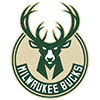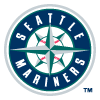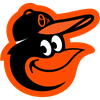Fantasy golf is a fast-growing area of fantasy sports. It has its own language and its own set of considerations when it comes to drafting and setting weekly lineups. This article will identify the various fantasy golf league formats and will discuss the various considerations fantasy golf owners should have as they start their foray into the fantasy golf world.
As in most other fantasy sports, in fantasy golf you build your team by drafting specific players. The goal is to select players who will earn the most points for your team. How points are awarded depends on the league format. There are three common formats for fantasy golf leagues and each format assesses player performance differently. In no specific order, the first league format rewards players based on money earned. The team with players who won the most money at the end of a tournament, or at the end of the year, wins. In this format, owners hope their players will finish high on the leaderboard at the end of a tournament because the higher the finish, the more money a player wins. So, if you had Jimmy Walker, Matt Bettencourt, and Jerry Kelly at the Sony Open this year, you would add together their winnings ($264,00 + 209,000 + 143,000) and $616,000 would be your team total. Leagues can decide to reward teams on a weekly level or at the end of the year.
The second format is round-based. In this format, golfers are given
Fantasy golf is a fast-growing area of fantasy sports. It has its own language and its own set of considerations when it comes to drafting and setting weekly lineups. This article will identify the various fantasy golf league formats and will discuss the various considerations fantasy golf owners should have as they start their foray into the fantasy golf world.
As in most other fantasy sports, in fantasy golf you build your team by drafting specific players. The goal is to select players who will earn the most points for your team. How points are awarded depends on the league format. There are three common formats for fantasy golf leagues and each format assesses player performance differently. In no specific order, the first league format rewards players based on money earned. The team with players who won the most money at the end of a tournament, or at the end of the year, wins. In this format, owners hope their players will finish high on the leaderboard at the end of a tournament because the higher the finish, the more money a player wins. So, if you had Jimmy Walker, Matt Bettencourt, and Jerry Kelly at the Sony Open this year, you would add together their winnings ($264,00 + 209,000 + 143,000) and $616,000 would be your team total. Leagues can decide to reward teams on a weekly level or at the end of the year.
The second format is round-based. In this format, golfers are given points according to their performance in each round of a tournament. The player with the best score in a given round receives a set amount of points. Other golfers receive a set amount of points fewer than the leader, depending on how many strokes they finish behind the leader in that round. So, if the round-leader shoots a 4-under and gets 20 points, a second-place golfer who shoots a 3-under would receive 18 points. Most tournaments have four rounds, which gives your players four chances to earn points. Some leagues using this format will allow you to change players after each round.
The final format is more technical and awards points based on 'standard' golf statistics. 'Standard' golf statistics include driving distance, driving accuracy, greens in regulation, etc. Most of these stats are rate stats, involving percentages (driving accuracy) and averages (driving distance). As with most fantasy golf league formats, this format lends itself best to roto leagues, but head-to-head leagues do exist.
The considerations when drafting and setting lineups in fantasy golf are many. Depending on the format, you're going to want to select the players who make the most money over the course of a season; have the best scoring average (a player's average score per round); or who perform best in the stats your league has decided to score. As the talent pool thins out during your draft, you want to start looking at how many tournaments a player enters over the course of the year. Some players choose to take a light tournament load while others try to enter as many tournaments as they can during the season. For fantasy owners, you cannot win if your players do not play, so players who enter a lot of tournaments can become valuable in later rounds of a draft. Fantasy owners should also be aware that real life golf consists mostly of two major tours; the PGA Tour and the European Tour. Some fantasy golf leagues, regardless of format, will base scoring only on PGA Tour event performance or only on European Tour performance while other leagues will allow scoring on both tours.
On a week-to-week, tournament-to-tournament level, it is important to look at a player's overall stats as well as the player's stats in previous years in that tournament and at that specific course. Certain players consistently perform well at specific courses and perform poorly at others. Even during Tiger's dominance in golf he struggled at certain courses. While it would have been hard to sit him in any given week two years ago -- he was that dominant for years -- now that he's working his way out of a slump and some of the Tour's competition has caught up, you should be mindful of the courses where he has his worst history. Especially in leagues that limit the times you can use him, you can gain an extra edge by knowing where he typically does his best work.
As a relative newcomer to fantasy golf, I have found the game very fun. I have enjoyed learning about the game of golf itself, as well as the subtleties in playing fantasy golf. Golf has a very tight-knit community because so many of us still actively play the sport (compared to baseball and football) and have struggled with the frustrations of such a subtle and nuanced sport. The golfing community is surely a club (no pun intended) and I encourage those of you who enjoy fantasy sports to try fantasy golf.


























